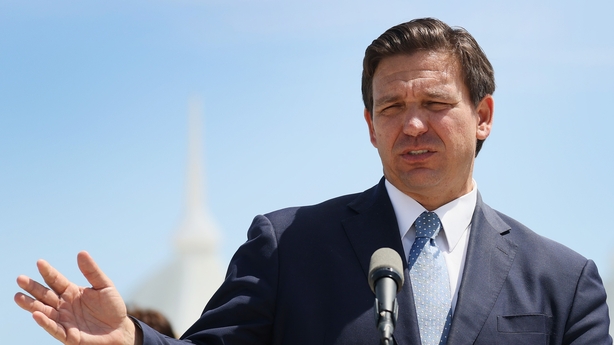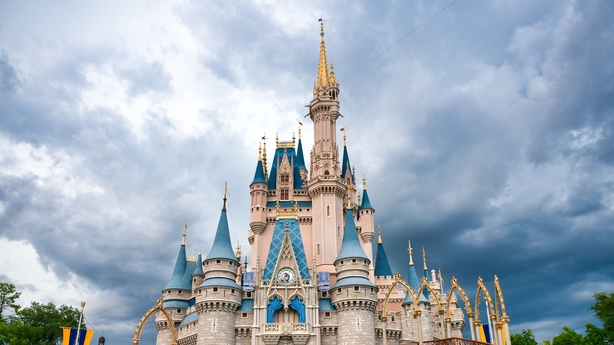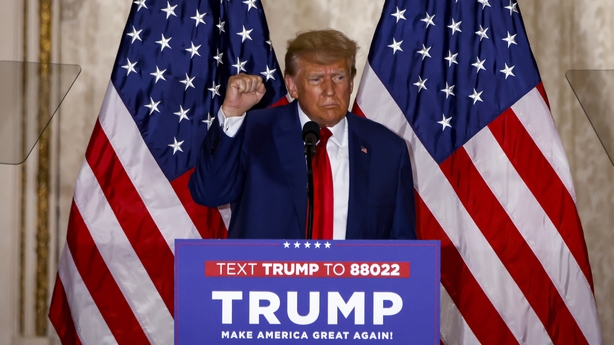Florida Governor Ron DeSantis has said that he would seek the 2024 Republican nomination for president, setting up a showdown with his one-time ally, former president Donald Trump.
Mr DeSantis made the announcement in a video ahead of an audio interview on Twitter with its CEO, Elon Musk.
The Musk interview, which had been intended to be the formal launch for the DeSantis campaign, was beset by technical issues that prevented listeners from hearing him, an inauspicious start for a campaign predicated on the governor's executive competence.
"We need the courage to lead and the strength to win," Mr DeSantis said in the video posted on Twitter.
"I'm Ron DeSantis, and I'm running for president to lead our great American comeback."
With a rising national profile and what are expected to be deep financial resources, Mr DeSantis, 44, immediately becomes Mr Trump's biggest rival for the Republican nomination.
But polls show Mr Trump with more than a 2-to-1 edge over the Florida governor, who has long been considered a Republican rising star and the herald of a new generation of leaders in the party.
Mr Trump, who announced in November his intention to seek reelection, has also had a head start in organising his campaign in key early voting states.
"We've got just a massive number of people online, so the servers are straining somewhat," Mr Musk could be heard saying while Twitter was experiencing the technical issues.
"We are reallocating server capacity to handle the load here; it is really going crazy," he continued.
The Biden campaign was quick to capitalise on the issues, tweeting a link to a fundraising page and stating simply: "This link works."
When the live discussion resumed, Mr DeSantis said: "We must end the culture of losing that has infected the Republican Party in recent years.
"The tired dogmas of the past are inadequate for a vibrant future. We must look forward, not backwards."
Mr Musk, the CEO of Tesla and Twitter with 140 million Twitter followers, said earlier that his presence at the event would not constitute an endorsement but would reflect his desire to make the service more of a town square.
Mr DeSantis was also expected to convene a meeting of his top donors at a Miami hotel, where they will immediately launch his fundraising efforts.

Supporters and donors will be keenly watching to see if Mr DeSantis now takes the fight to Trump, who has been relentlessly attacking him with little reaction, much to the frustration of some Mr DeSantis allies who wanted him to respond more forcefully.
Mr DeSantis' impassioned battles over Covid-19 pandemic lockdowns and divisive cultural issues have endeared him to conservatives. He was re-elected handily to a second term in November.
The Florida Governor and Mr Trump close allies during Trump's four years in the White House - the former president endorsed him during his first campaign for governor - but Mr DeSantis has since forged his own political identity.
During the coronavirus pandemic, he became the national face of resistance to mask and vaccine mandates and has been a virulent critic of Dr Anthony Fauci, who headed the US government's Covid-19 response in both the Trump and Biden administrations.
In speeches, he has argued his policies made possible Florida’s economic recovery from the pandemic, turning the state into a magnet for hundreds of thousands of new residents.
Florida has consistently outpaced the country in job growth over the last two years.
In the months leading up to his presidential bid, Mr DeSantis has toured the country, visiting states such as Iowa and New Hampshire that will hold early presidential nominating contests next year and talking up his accomplishments in Florida.
But his decision to wait until now to join the fray has allowed Mr Trump to batter Mr DeSantis with a series of attacks, costing him standing in national polls.
Read more:
Ron DeSantis: Trump without the chaos?
Mr DeSantis has rebuffed critics, pushed his priorities through the legislature and punished his enemies.
His Democratic opponent in his 2022 re-election campaign, Charlie Crist, called Mr DeSantis a "wannabe dictator".
When Walt Disney Co, one of Florida's biggest employers, opposed the so-called "Don’t Say Gay" law that limited discussion of LGBTQ issues in schools, Mr DeSantis moved to strip the company of its self-governing status.
Disney has since filed a federal lawsuit against the governor, accusing him of weaponising state government to retaliate against the company.
When an elected Democratic state attorney said he would not prosecute anyone for defying Mr DeSantis-backed limits on abortion, the governor removed him from his position.
Mr DeSantis has made crusading against what Republicans call "woke" education policies a centerpiece of his politics while supporting conservative candidates for local school boards.
He backed a legislative measure that prohibits the teaching of "Critical Race Theory" - an academic doctrine that views US history through the lens of oppression - in state public schools despite little evidence it was being taught.

Republican politicians in Florida handed Mr DeSantis a number of conservative victories in its recent session: They expanded the state's school voucher programme, prohibited the use of public money in sustainable investing, scrapped diversity programmes at public universities, allowed for permitless carry of concealed weapons and, perhaps most notably, banned almost all abortions in the state.
The widespread abortion ban may help Mr DeSantis appeal to the party's evangelicals, but may damage him significantly in the November 2024 election should he make it that far.
Pro-business Republicans have also been critical of his feud with Disney, arguing that it is at odds with the party's traditional hands-off approach to regulation.
Republicans nationwide have taken notice of his aggressive approach to governing.
Mr DeSantis and his affiliated political action committee raised more than $200 million (€186m) in support of his re-election bid for governor.

Also watching has been Mr Trump, who has taken to deriding his one-time protégé at rallies, nicknaming him "De Sanctimonious" and claiming credit for making Mr DeSantis the political rising star he is today.
Mr DeSantis has a wholly different style than the bombastic Mr Trump: low-key, buttoned-down and prone to favouring policy over personal attacks.
Prior to his election as governor in 2018, Mr DeSantis served as a US congressman for three terms.
His wife, Casey DeSantis, is considered his closest political adviser. The couple has three children.

